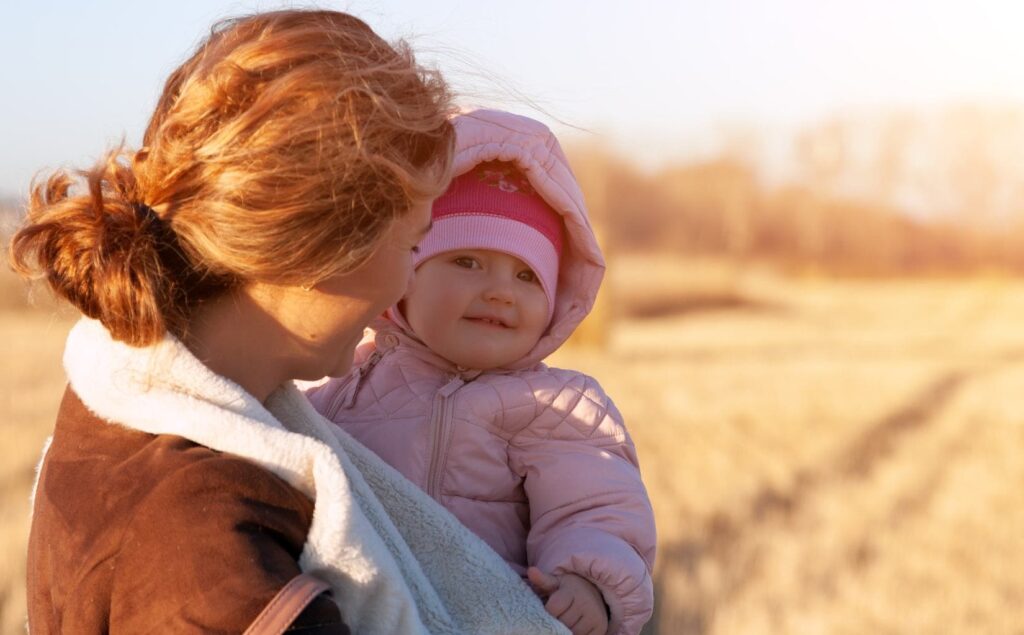Postpartum Depression Treatment in Boulder, Colorado
Bringing a new child into the world is life-changing. For many mothers, this season is filled with love and excitement, yet it can also be accompanied by sadness, anxiety, and emotional exhaustion. When these feelings linger or intensify, they may be signs of postpartum depression. At Flatirons Recovery, we provide compassionate, evidence-based postpartum depression treatment in Boulder to support mothers as they heal, reconnect, and rediscover stability in their lives.
A Closer Look at Postpartum Depression
It is natural for new mothers to experience emotional changes following childbirth. Hormonal shifts, physical recovery, and new responsibilities often create moments of fatigue or moodiness. These are commonly known as the “baby blues” and usually resolve within two weeks.
PPD, however, is more serious and long-lasting. It involves persistent sadness, loss of interest, or emotional disconnection that impacts daily functioning and the ability to bond with a child. Unlike temporary mood swings, PPD does not simply fade with time. Without treatment, it can continue for months or longer, significantly affecting postnatal mental health and family well-being.
PPD can develop within days of delivery or later in the first year. While most commonly associated with mothers, it can also affect fathers and partners. Understanding that PPD is a medical condition, not a personal weakness, helps families seek the timely care they deserve.

Recognizing the Symptoms of PPD
Postpartum depression symptoms vary widely, but they often extend beyond feelings of sadness. Recognizing them is an important step in seeking support and effective treatment. Common symptoms include:
- Persistent sadness, emptiness, or frequent crying.
- Difficulty bonding with the baby or feelings of detachment.
- Excessive worry, heightened anxiety, or panic attacks.
- Irritability, frustration, or a sense of being overwhelmed.
- Disrupted sleep patterns, including insomnia or oversleeping.
- Loss of interest in activities once enjoyed.
- Severe fatigue or low motivation.
- Difficulty with concentration or decision-making.
- Guilt, shame, or feelings of inadequacy as a parent.
- Thoughts of self-harm or harming the baby in severe cases.
If symptoms last for more than two weeks or interfere with daily life, professional treatment is necessary. Early recognition allows mothers to prevent further emotional and physical strain and begin the journey toward recovery through postpartum depression treatment in Boulder.
Risks Mothers and Families Face When PPD Goes Untreated
Postpartum depression can affect anyone, but several factors increase the risk. Hormonal shifts after childbirth, particularly the drop in estrogen and progesterone, can disrupt mood regulation and heighten emotional instability. A personal or family history of depression, anxiety, or bipolar disorder also raises vulnerability, as existing conditions may intensify during the postpartum period.
Support after birth plays a critical role. Limited help from partners, family, or friends can contribute to isolation and stress. Difficult pregnancies or traumatic deliveries may also leave lasting emotional effects that heighten vulnerability. These circumstances often leave mothers physically drained and emotionally strained, making recovery more challenging.
Stress and lack of sleep further increase risk. Chronic sleep deprivation weakens emotional resilience, while financial concerns, relationship struggles, or other pressures can compound the strain of new parenthood. Without rest and relief, mothers may find it harder to manage daily responsibilities and stabilize their mood.
When left untreated, PPD can affect both mother and child. It may interfere with infant bonding, delay early development, and place strain on family relationships. Over time, it can evolve into chronic mental health challenges. Timely treatment reduces these risks and helps mothers and families build a healthier, more stable future.
Understanding Postpartum Psychosis and Its Urgency
While PPD is relatively common, there is a more severe condition known as postpartum psychosis. It affects only one to two mothers per 1,000 births, making it rare but serious. Postpartum psychosis usually develops within the first few weeks after childbirth and requires immediate medical care.
Symptoms may include hallucinations, delusions, confusion, severe mood swings, and suicidal thoughts. With early intervention, mothers experiencing postpartum psychosis can recover, but it is always considered a psychiatric emergency. Flatirons Recovery emphasizes the importance of awareness, as understanding this condition helps families act quickly if symptoms appear and get postpartum depression treatment in Boulder.

How PPD and Addiction Can Be Connected
For some mothers, the overwhelming emotions tied to postpartum depression lead to self-medicating with alcohol or other substances. While this may bring temporary relief, substance use often worsens depression and creates dependency. What begins as a coping mechanism can quickly become a cycle that is difficult to break without professional help.
Mothers may turn to substances for several reasons. Some seek relief from sadness, exhaustion, or worry. Others attempt to manage sleep disturbances or numb feelings of inadequacy and guilt. In some cases, an existing substance use disorder may worsen after childbirth, increasing both emotional and physical risks.
We provide specialized care for postpartum depression and addiction through dual diagnosis treatment. By addressing both postnatal mental health and substance use disorders together, mothers receive comprehensive support and learn healthier coping strategies. This integrated model helps break the cycle of self-medication and allows recovery to become sustainable.
Flatirons’ Approach to Treating Postpartum Depression
Healing from PPD requires individualized, evidence-based care. At our recovery center, our approach includes postpartum counseling in Boulder and therapies proven effective for mothers’ mental health, along with experiential methods that support whole-person healing.
Proven Therapies for PPD
Cognitive Behavioral Therapy (CBT) helps mothers recognize and replace negative thought patterns. Dialectical Behavior Therapy (DBT) builds emotional regulation and mindfulness skills to manage intense emotions. Acceptance and Commitment Therapy (ACT) encourages resilience by guiding mothers to act in line with their values during difficult moments.
We also offer trauma-informed care for those with past emotional or physical trauma. Eye Movement Desensitization and Reprocessing (EMDR) can ease distress from traumatic memories that surface after childbirth. These therapies form a strong foundation for treating PPD while addressing the unique challenges of maternal mental health.
Mindfulness and Experiential Care in Recovery
Flatirons Recovery incorporates experiential and mindfulness practices to support mothers during recovery. Mindfulness and meditation help reduce stress and increase emotional awareness, while experiential therapy encourages healing through creative and nature-based activities.
Parenting support and education provide practical tools that ease the transition into motherhood. Together, these approaches complement clinical therapies, promoting both immediate relief and lasting stability.

Why Gender-Specific Treatment Matters for Women
PPD affects women differently based on their personal experiences, identities, and histories. Our gender-specific postpartum depression treatment in Boulder offers a safe space for women to explore these complexities without judgment.
At our center, our women’s program addresses maternal mental health through evidence-based therapy, trauma-informed counseling, and mood regulation techniques. Treatment considers both the emotional challenges of new motherhood and potential co-occurring conditions such as anxiety or substance use.
Our goal is to ensure that every woman feels seen, understood, and respected throughout the healing process. Gender-specific treatment acknowledges the unique realities of motherhood and provides targeted care that supports sustainable recovery.
Ways to Support a Loved One with PPD
Support from loved ones can play a critical role in recovery. If you know someone experiencing postpartum depression or anxiety, here are meaningful ways to help:
- Listen without judgment. Allow them to share their feelings openly.
- Offer practical support. Assist with childcare, household tasks, or meals to ease daily stress.
- Encourage professional treatment. Suggest therapy or counseling and offer help with research.
- Stay connected. Isolation often worsens symptoms, so regular check-ins are valuable.
- Be patient and consistent. Recovery is gradual, and ongoing support is essential.
Understanding how to provide both emotional reassurance and practical help can ease the burden on mothers and encourage them to seek postpartum counseling in Boulder.
Answers to Common Questions About PPD
Finding answers to common concerns can help ease uncertainty and guide the next steps in recovery. Here are some of the most frequent questions about postpartum depression treatment in Boulder:
When should I seek professional help for PPD?
If symptoms last longer than two weeks, interfere with daily life, or involve harmful thoughts, professional help is necessary. Seeking care early allows mothers to begin recovery before symptoms worsen.
Can PPD return in future pregnancies?
Yes, women who have experienced postpartum depression are at higher risk in later pregnancies. Proactive treatment and support can reduce this risk and strengthen emotional resilience.
Can PPD affect fathers or partners?
Although less common, fathers and partners can also experience depression or anxiety after a baby is born. Support is available for all caregivers adjusting to parenthood.
Does Flatirons Recovery provide postpartum anxiety treatment in Boulder?
Yes, our team offers specialized care for mothers experiencing both postpartum depression and anxiety. Our postpartum anxiety treatment in Boulder uses evidence-based therapies to help reduce stress and rebuild confidence.
Does Flatirons offer dual diagnosis care for postpartum depression and addiction?
Yes, we integrate treatment for postpartum mental health and substance use disorders, helping women navigate the challenges of early motherhood. This approach ensures both conditions are addressed for lasting recovery.
Seeking help for PPD is a sign of strength, not weakness. We are here to walk with mothers and families through every step of healing.
Healing Begins With Postpartum Depression Treatment in Boulder
PPD can feel overwhelming, but no mother needs to face it alone. At Flatirons Recovery, we provide evidence-based, compassionate postpartum depression treatment in Boulder that helps mothers heal emotionally, build resilience, and strengthen family connections.
If you or someone you love is experiencing PPD, support is available. Our programs combine individualized care, experiential therapies, and professional counseling to restore balance and hope. Contact us today to begin your journey toward healing and renewed joy in motherhood.
